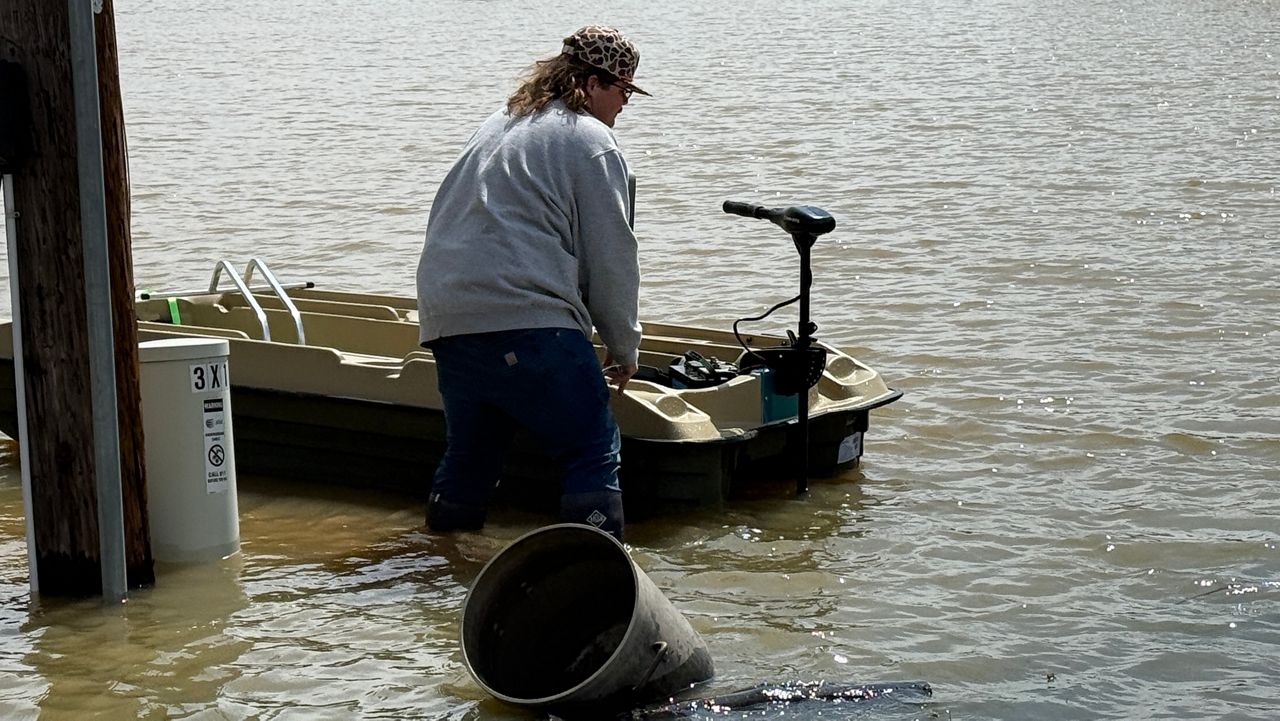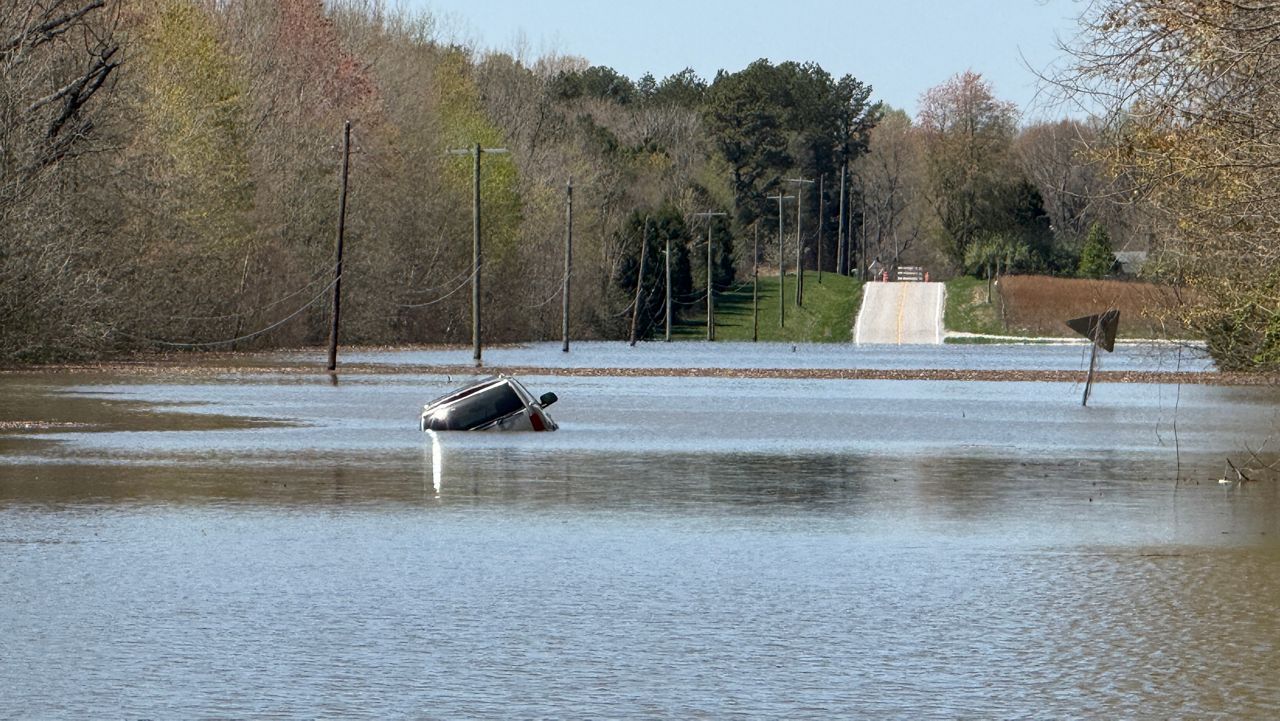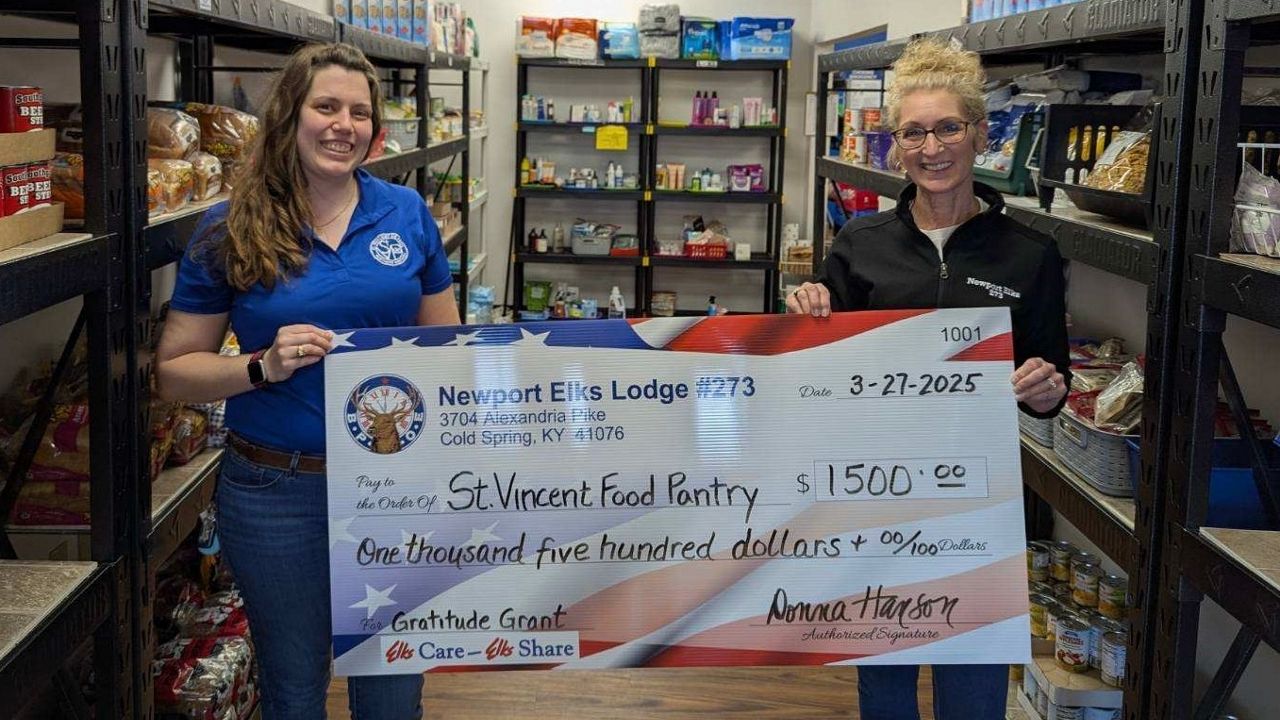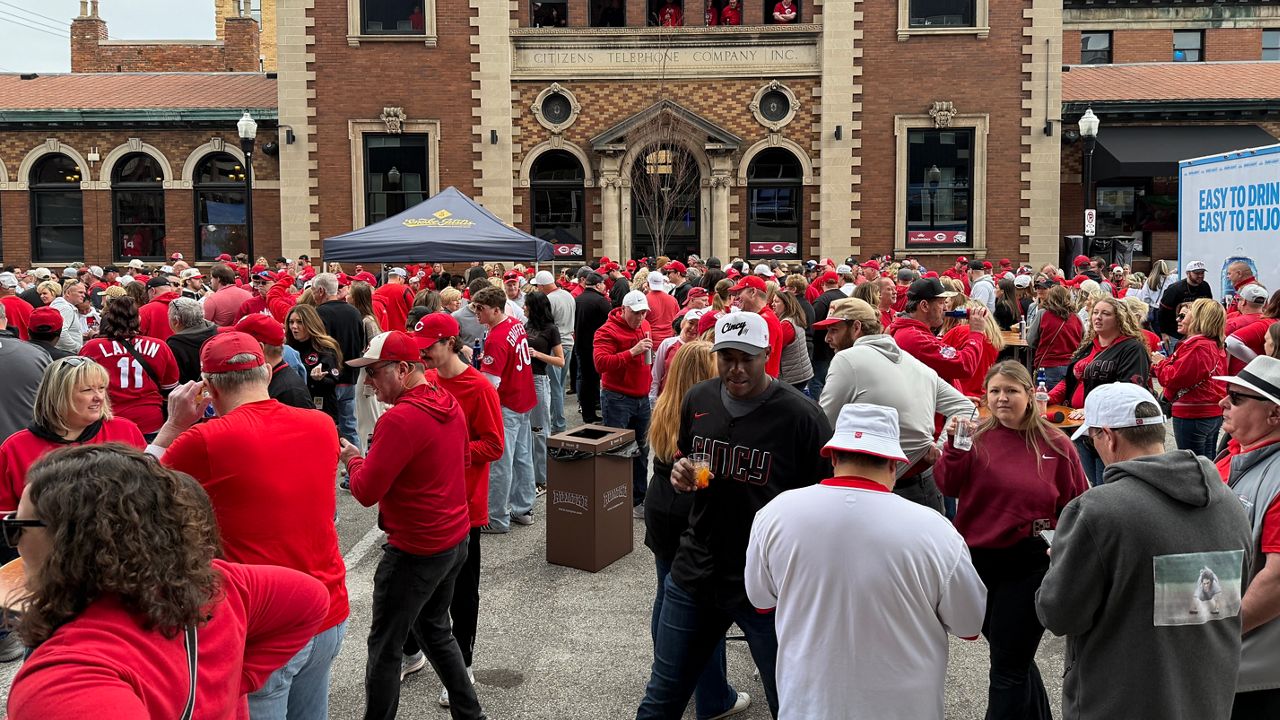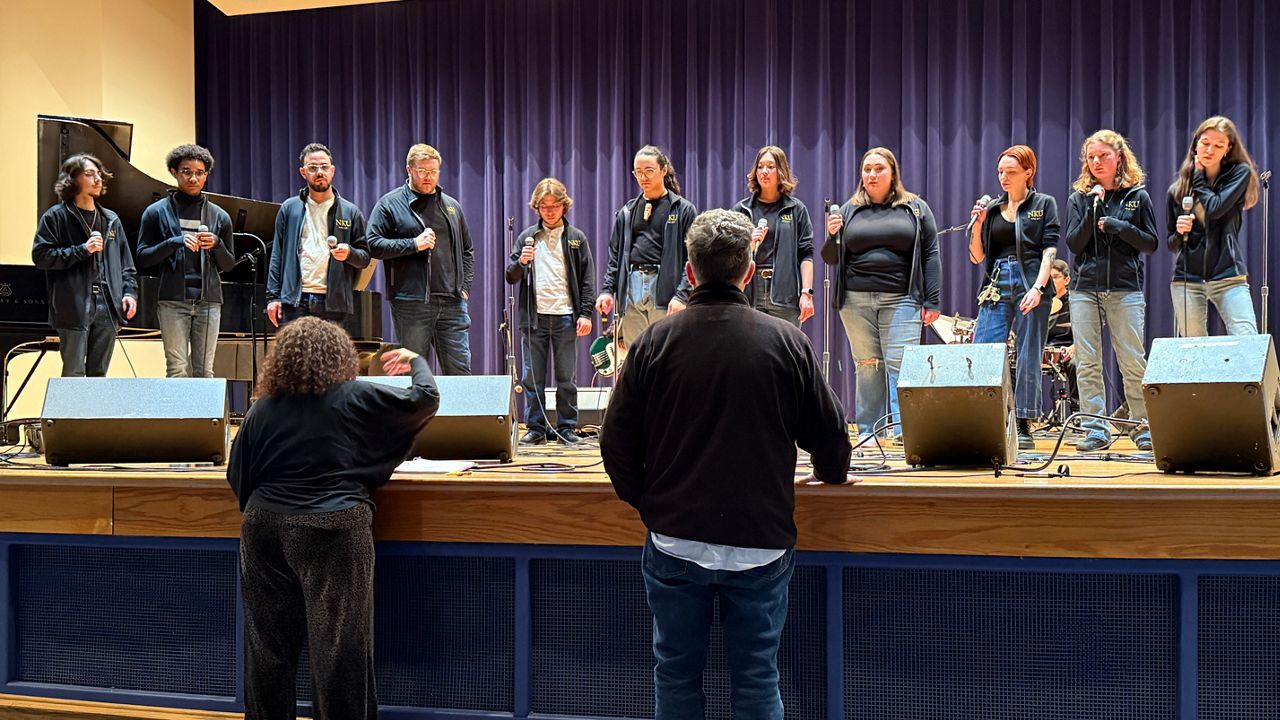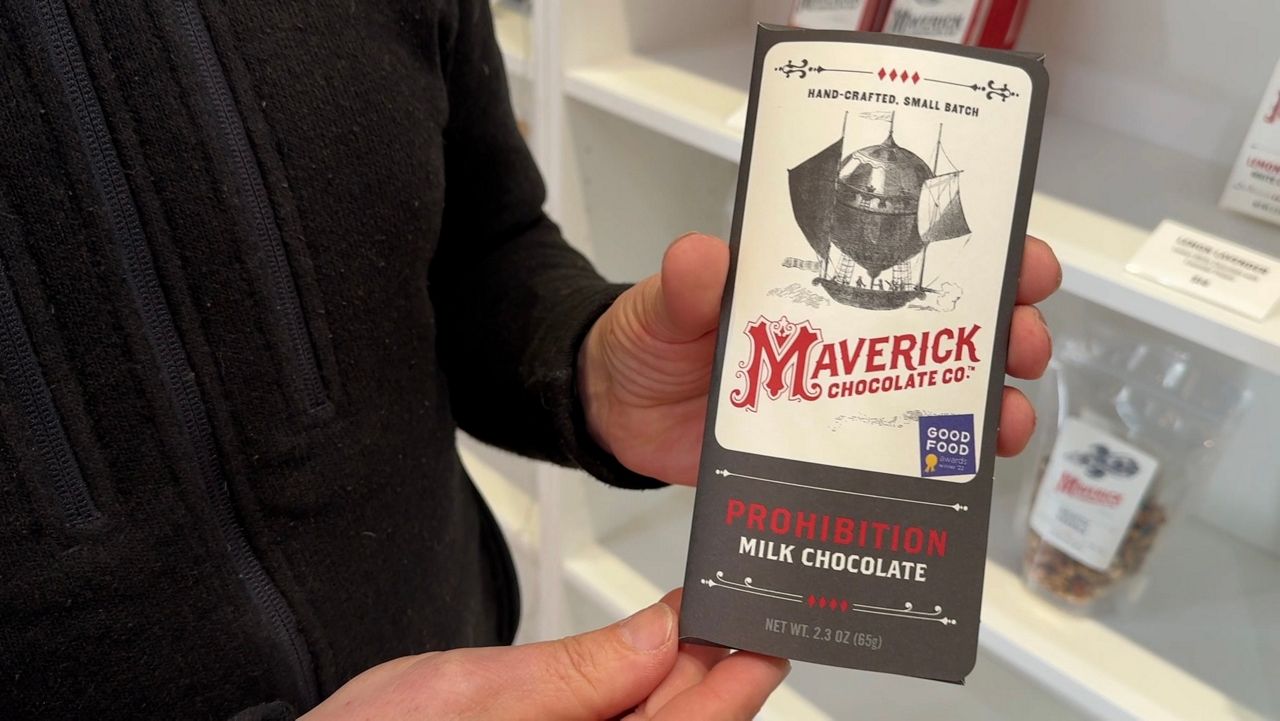FORT THOMAS, Ky. — One goal of the Kentucky Cancer Action Plan, which provides a comprehensive blueprint for reducing cancer burden throughout the commonwealth by 2030, is “strengthen health professional workforce.”
Spectrum News 1 spoke to a northern Kentucky nurse who lost both of her parents to cancer. That inspired her to dedicate her life to caring for others, and she’s hoping to inspire others to do the same.
Kelly Donnelly Houp got her first experience of caring for cancer patients at a young age. The heartbreak that came with it was almost unbearable.
“I’ve always wanted to be a nurse ever since I was a little girl. But I lost both of my parents to cancer by the age of 23. So taking care of them at home and doing all that kind of stuff really told me that this is what I’m supposed to do,” Donnelly Houp said. “When my father was first diagnosed and passed away, I was like I can’t do this, I can’t do this, but he always was like you take such good care of me, and loved the care I provided. I’m like this is what I should be doing. And then three years later my mom was diagnosed with cancer. She also, we took care of her at home, and it’s just my calling. It’s who I am. It’s what I love to do.”
Today she leads an entire floor for St. Elizabeth Healthcare, managing other nurses and also still treating patients, many of whom are fighting cancer.
Kentucky ranks first nationally in the rate of new cancers and second in cancer death rates. The Kentucky Cancer Action Plan looks to address this with one important aspect being strengthening the health care workforce.
“We could always use more help, but I do feel like we still provide excellent care,” Donnelly Houp said. “You do need all these different people to play into all the different roles that our patients need. I might be able to deal really well with something like the emotional aspect of it, but then we have another one that can come in and deal better with another aspect of the patient and what needs to be done. So it takes all of us, our whole team, to provide the care that we provide.”
Brittany Sorrell has been a registered nurse for 14 years, and is now a leader in workforce development for St. Elizabeth.
“I started my career in 2011. There was an oversupply, and there was a freeze, and I was lucky to get a job at a hospital. And now fast forward 14, 15 years, and now we’re seeing the opposite. We’re seeing a shortage,” she said.
Sorrell said part of the problem is generational.
“We have a large group of baby boomers. You’re having them retire and leave the workforce, but then you’re also having them need the workforce that they’re leaving,” she said.
A big focus of hers is planning events to expose students from 12th grade to kindergarten to a career in health care, with the goal of creating a robust pipeline.
“At some point, I’m going to need care. My family’s gonna need care. And I want to make sure that we still have a health care system that provides that top-notch level of care,” Sorrell said.
Scientists estimate more than half of cancers could be prevented by changing behaviors, reducing risks, addressing disparities, minimizing toxic exposures and removing precancerous lesions. Donnelly Houp said the starting point is often the interaction between patient and nurse.
“This is the worst time of their life. They’re facing a terrible disease. Just getting to know them, and talking with them, and it’s a beautiful thing,” she said. “Nursing is the most rewarding job you could ever have. Is it stressful at times? Absolutely. One minute you could be saving a life doing compressions. It is the most rewarding job. You can go to work every day and make a difference.”
One way St. Elizabeth is working to establish a pipeline of health care professionals is through scholarships. Northern Kentucky University students can apply for a scholarship of up $10,000 funded by St. Elizabeth.







